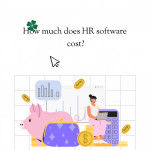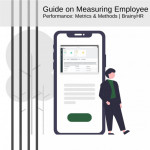Is an HRIS necessary for your business?
The first step is to analyze your needs and decide whether you need an automated HR system. In most cases, small business owners are hesitant to purchase this solution. However, we should also point out that HRIS can also be advantageous for small businesses. Yes, some employers can manage all HR operations manually in small companies. It is, however, more difficult in large organizations, and, as a result, digital HR solutions are becoming more and more important.
Thus, it is possible to identify how and why an HRIS can be beneficial for your small or large company:
- To analyze your workforce data properly, you need more tools;
- You'll find it harder to manage employee data as your business grows;
- There are different systems used by your business for different HR functions;
- If you are hiring specialists or independent contractors, you will need better support;
- Your organization wants to improve employee satisfaction.
Our demo version of BrainyHR is free right now, so if you've found reasons on this list that are on your mind, you can try it before you buy.
What should you consider when choosing an HRIS?
The market offers a wide variety of products. To make the right choice that will satisfy you, you should make a list of your needs and follow certain steps, such as:
- Staff size
Despite having a small-to-medium workforce, you can still benefit from an HRIS due to flexible pricing plans and cloud-based software-as-a-service (SaaS) HR systemsSeveralof HRIS packages are free for businesses with fewer than five employees, with tiered pricing plans becoming available for organizations with five, ten, twenty, fifty, or more employees. Select the HRIS functionality that is appropriate for the number of employees you have.
- Understand the HR challenges facing your organization
Each business is unique, so it makes sense that certain features of an HRIS will be more important to your organization than others. Start by identifying all of the challenges you face with your current HR process. Your organization will be able to identify areas of need and highlight the specific features you will need in an HRIS.
- Make a list of your business objectives that pertain to your search for HRIS
It is important to note that not all capabilities are created equal. There may be some HRIS vendors that are better suited to resolve current issues while others may provide more opportunities for scalability and access to HR experts. The following are some of the key criteria for selecting an HRIS:
- Are all users able to adopt and utilize the HRIS technology easily?
- In what ways does the HRIS improve productivity through improved workflows and processes?
- Employers and employees alike should consider how well the HRIS integrates key HR systems.
- Describe the built-in compliance capabilities that ensure your business meets local, state, and national regulations and requirements.
- In the future, how well will the HRIS scale with your business?
- Analyze HRIS vendors
As soon as you have identified your organization's needs, your business goals, and other criteria, you are ready to compare different HRIS vendors. Prepare a shortlist of vendors that meet your needs and budget, then contact them to schedule interviews and ask for live demos to gain as much information as possible about them.
- Check out the demonstrations
Demonstrations are an excellent method of seeing how a solution works. It is recommended that you gather the team's questions or use cases in advance and send them to potential vendortoto get the most out of them. With this package, your candidates will be able to tailor their demos to meet your specific requirements.
- Finalize the process
It is important to note that the work does not end with a decision. Following the identification of the best HRIS for your organization, you will be required to implement this new system. Make sure you develop a detailed migration plan with your HRIS vendor and ensure that you communicate with your employees about the process and what they can expect the transition will impact them. Upon completion of the implementation, provide training to individuals on how to effectively utilize the system.
Summary
The use of HRIS has many advantages for small and medium-sized businesses seeking to improve their efficiency too and make the most of a digital solution, you must take the right steps in choosing and selecting the appropriate HRIS. Automated human resource systems are available on the market at a wide range of prices and with different levels of functionality. Considering the importance of an employer's choice, the option they choose must meet their current needs and t be flexible enough to grow and expand with the organization in the future. Ready to make your business simpler, safer, and more efficient by implementing the right Human Resource Information System? Contact us today to discover how Brainy HR can help solve your business challenges.


 Posted on Dec 14, 2022 by Lillia
Posted on Dec 14, 2022 by Lillia


